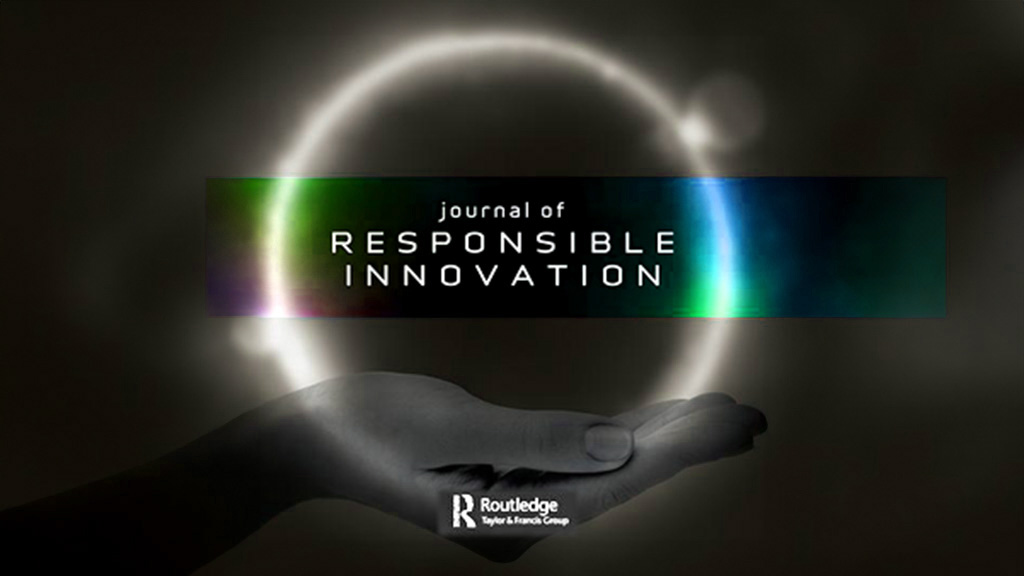As regular readers will know, the Bassetti Foundation has long been raising questions around relationships between food, its procurement choices and responsible innovation thinking, an overview of which can be found here.
In this, the third review of Volume 10 of the Journal of Responsible Innovation (2023), we take a look at four articles that address this and similar issues.
Configuring more responsible knowledge-based bio-economies: the case of alternative agro-food networks from Katerina Psarikidou very much reflects many of the questions Grasseni and Hankins raised in their 2014 article Collective food purchasing networks in Italy as a case study of responsible innovation.
Grasseni and Hankins offered insights into solidarity economies, and in particular alternative food networks, as a form of active citizenship that could re-orient the current debate on responsible innovation. Psarikidou extends this thinking by describing what she sees as evident: alternative agrifood distribution and consumption practices are important for configuring the knowledge bio-economy in more responsible, inclusive and reflexive ways.
Psarikidou’s research field is in the Northwest England, and rather like Grasseni’s work on skilling within alternative food networks, this paper unpacks the diversity of knowledges and knowledge production processes within alternative agro-food networks. The author discusses relationships, ownership of knowledge and funding of research, alongside the issue of the prevalent narrow vision of such research, and encourages consideration of the centrality of knowledge inclusion and reflexivity in configuring more responsible research and innovation processes for agriculture and food.
The role of consumers in promoting responsible innovation thinking also takes centre stage in Widening the scope of responsible innovation: food waste and the role of consumers from ex VIRI member Ellen-Marie Forsberg with Matteo Corciolani, Julia Szulecka and Nhat StrømAndersen.
The authors explore questions around how consumers conceptualise their responsibilities to contribute to food waste reduction using a World café research approach with students and food company representatives. Following an explanation of their research methods and presentation of their questionnaire and responses, the authors describe a host of conversations, including around the topic of consumer social responsibility and barriers to socially responsible consumption, communication between companies and consumers, and awareness of the problem of food waste.
Forsberg and colleagues conclude that they find and document a lack of engagement and a lack of knowledge and ‘significant room for building competence and capacity to increase such engagement, making use of the existing knowledge base to build strategies, methods, and incentives’.
Rethinking ‘responsibility’ in precision agriculture innovation: lessons from an interdisciplinary research team is by Edward Prutzer, Maaz Gardezi, Donna M. Rizzo, Mary Emery, Scott Merrill, Benjamin E.K. Ryan, Panagiotis D. Oikonomou, Juan P. Alvez, Damilola T. Adereti, Rubaina Anjum, Appala R. Badireddy, Dwarika Bhattarai, Skye Brugler, Nicholas Cheney, David Clay, Sharon Clay, Ali Dadkhah, Joshua W. Faulkner, Deepak R. Joshi, Christopher Koliba, John McMaine, Semhar Michael, Sardorbek Musayev, Jarlath O’Neil-Dunne, George Pinder, Taylor Ricketts, Andrew W. Schroth, Scott Turnbull and Asim Zia
This paper expands the scope of responsibility by engaging with new materialism, where responsibility also means ‘accounting for how practices matter’ for both human and nonhuman nature, providing an overview of challenges and opportunities for innovation governance of new agricultural technologies.
The authors examine the interactions, decisions, and evaluations of a team of researchers tasked with developing an artificial intelligence-based agricultural decision support system that can provide farmers with site-specific information about managing nutrients on their land, asking the following questions: How does a relational perspective help an interdisciplinary team conceptualize ‘responsibility’ in a project that develops precision agriculture (PA)? and what are some lessons for a research team embarking on a similar interdisciplinary technology development project?
The paper proposes two lessons for transdisciplinary RI research: to create mechanisms for team members to see how power and privilege are exercised in the design and development of PA and to harness the social sciences as a bridge between natural sciences and engineering for organic and equitable collaborations.
In our final offering for today Governing gene-edited crops: risks, regulations, and responsibilities as perceived by agricultural genomics experts in Canada, Sarah-Louise Ruder and Milind Kandlikar explore the role and responsibilities of agricultural genomics experts in governing gene editing (GE) for food and agriculture.
Engaging with the frameworks of technological determinism and Responsible Research and Innovation, the authors raise the following questions: How do agricultural genomics experts in Canada view the risks and benefits of GECs? What are the regulatory challenges for GE in agriculture, given the history of GMOs, according to these experts? How do agricultural genomics experts in Canada view the role of publics in the development and governance of GE? To what extent do these experts exercise principles of RRI, and what are the implications for the governance of GECs.
Based upon eight in-depth semi-structured interviews with agricultural genomics experts, findings are presented in three categories: perceptions of risks and benefits, governance and regulatory challenges, and public engagement.
In conclusion, Ruder and Kandlikar advocate for collective responsibility to ground the entire structure of science (e.g. universities, graduate and post-doctoral training, funding agencies, and regulatory bodies) to engage in deliberative inclusion and research that responds to social and environmental goals.
Once again the JRI offers high quality and easy to read content without payment barriers to its readers. All articles can be downloaded through the links above.
















